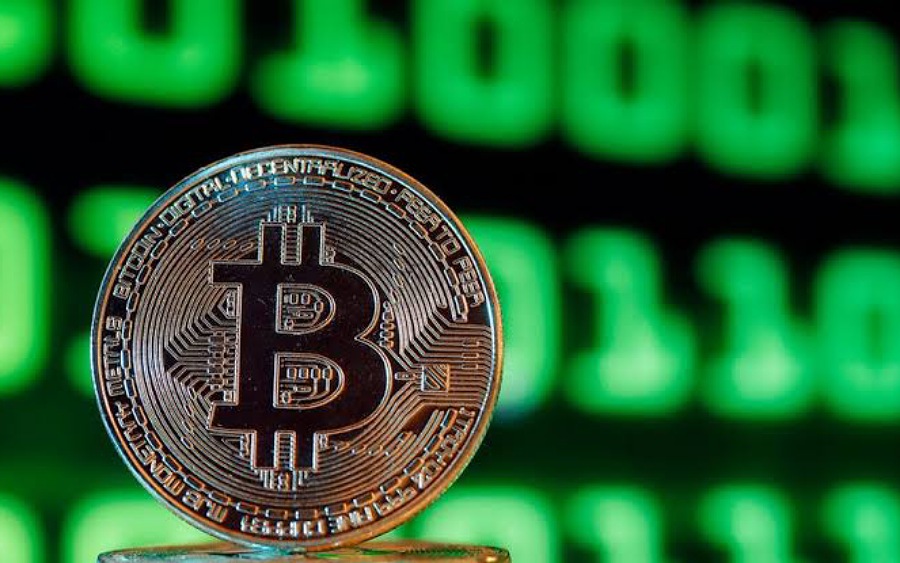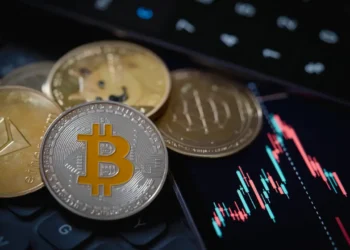Bitcoin has been struggling with volatility in recent weeks as investors have taken a cautious approach due to concerns about monetary policy tightening and its potential effects on risky assets.
The most recent U.S. Federal Reserve’s hawkish stance may be maintained for longer than expected, according to the Consumer Price Index (CPI) data for January, released last week, which showed inflation continuing above the target of 2 percent.
Since higher interest rates typically reduce investor appetite for speculative investments, this has cast a shadow over Bitcoin and other risk-sensitive assets.
However, higher institutional interest and the Fed’s stance on Bitcoin offer hope for the space. The asset is currently trading below the $96.5K mark as traders weigh market sentiment.
Institutional Adoption High
Global asset managers, from wealth management firms to hedge funds and pension funds, have increased their allocations to U.S. exchange-traded funds linked to the price of Bitcoin as the price of the largest cryptocurrency in the world surged 47% in the fourth quarter of 2024, as seen in U.S. SEC filings.
- According to the Wisconsin State Investment Board’s quarterly 13-F filing with the Securities and Exchange Commission, the board’s holdings in Bitcoin ETFs more than doubled to 6 million shares of the iShares Bitcoin Trust ETF (IBIT.O) as of December 31.
- Tudor Investment Corp, a systematic hedge fund manager with $55 billion under management, announced that its iShares ETF holdings grew from 4.5 million to 8 million units.
- The value of those holdings increased from $159.9 million at the end of September to $426.9 million in tandem with Bitcoin’s rise. Mubadala Investment Co., an Abu Dhabi-based sovereign wealth fund, recently revealed its first foray into Bitcoin exchange-traded funds (ETFs), holding 8.2 million shares of the iShares ETF, worth $436.9 million in the fourth quarter.
Historical trends associated with a crucial indicator suggest that Bitcoin (BTC) has plenty of upward potential in the future, especially since the present surge could be challenged by growing U.S. inflation.
U.S. Fed Calls Bitcoin Digital Gold
Jerome Powell, the Chair of the Federal Reserve, has changed his stance on Bitcoin (BTC), which has given the cryptocurrency market new hope.
“People use Bitcoin as a speculative asset, right? It’s like gold,” Powell said in an interview with Andrew Ross Sorkin at the New York Times DealBook Summit. “It is identical to gold alone. It’s online. It’s electronic.”
“It is not being used as a store of value or as a means of payment. It is extremely erratic. It isn’t a rival for the dollar. It is a rival for gold,” he added.
CZ of Binance remarked, “That’s an improvement over the previous narrative,” after noticing this change in attitude.
- Powell acknowledges the potential of Bitcoin as a store of value, but he still believes that it cannot compete with the U.S. dollar because it is not widely used as a payment method and remains highly volatile.
- Powell’s adamant opposition to renewed quantitative easing (QE) and his unwavering commitment to quantitative tightening (QT) have heightened debates. The Fed would only consider QE in extreme circumstances, like near-zero interest rates, according to his testimony on February 11th, which makes any policy change unlikely in the near future.
- Some believe this is a sensible strategy for preserving economic stability, while others worry it might increase the uncertainty surrounding Bitcoin’s next significant rally.
Bitcoin faces a difficult road ahead with rate cuts off the table and inflation still above target. However, investors are still encouraged by Powell’s changing perspective on Bitcoin as a store of value, which leaves them wondering how future monetary policies might affect the market for digital assets.
























